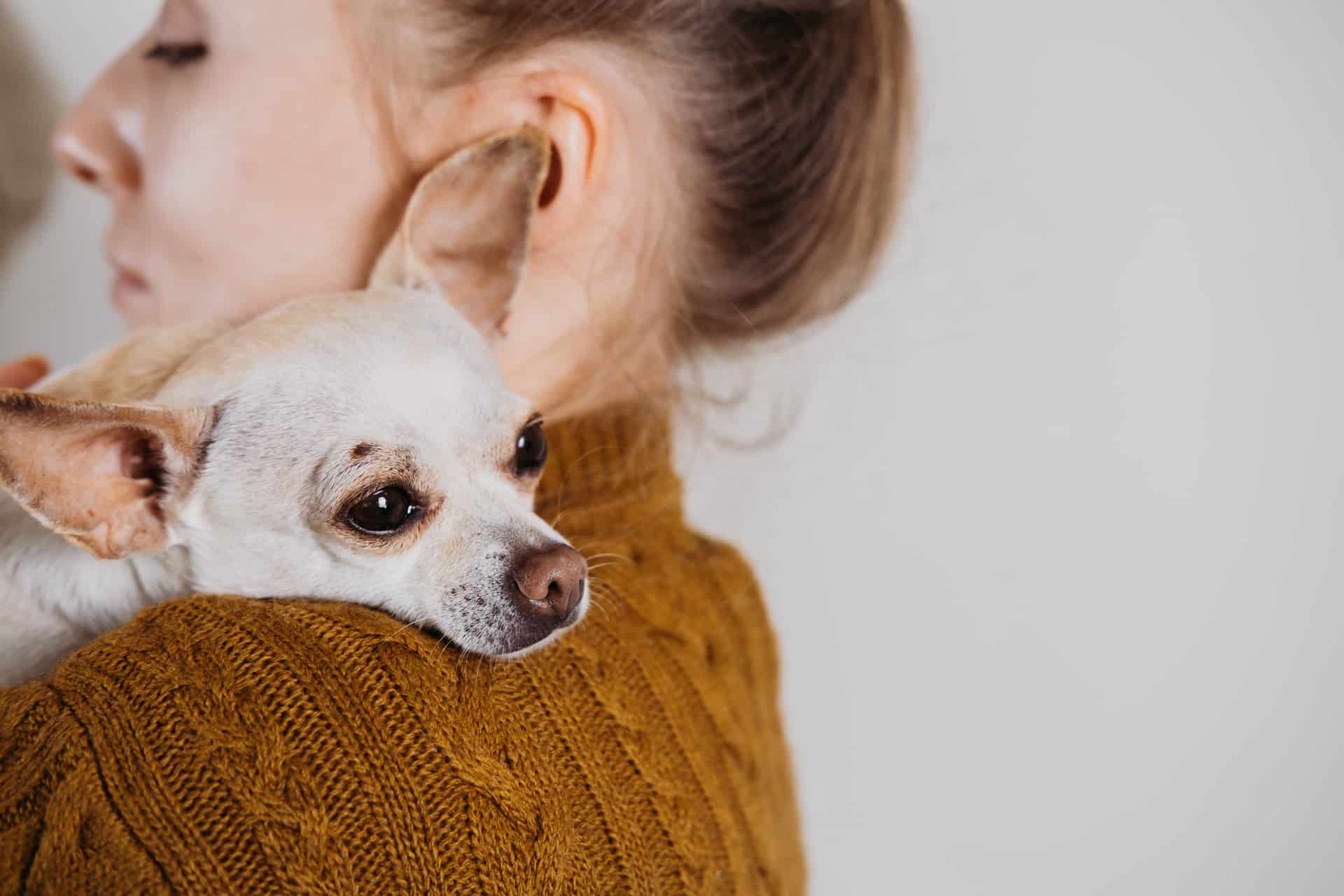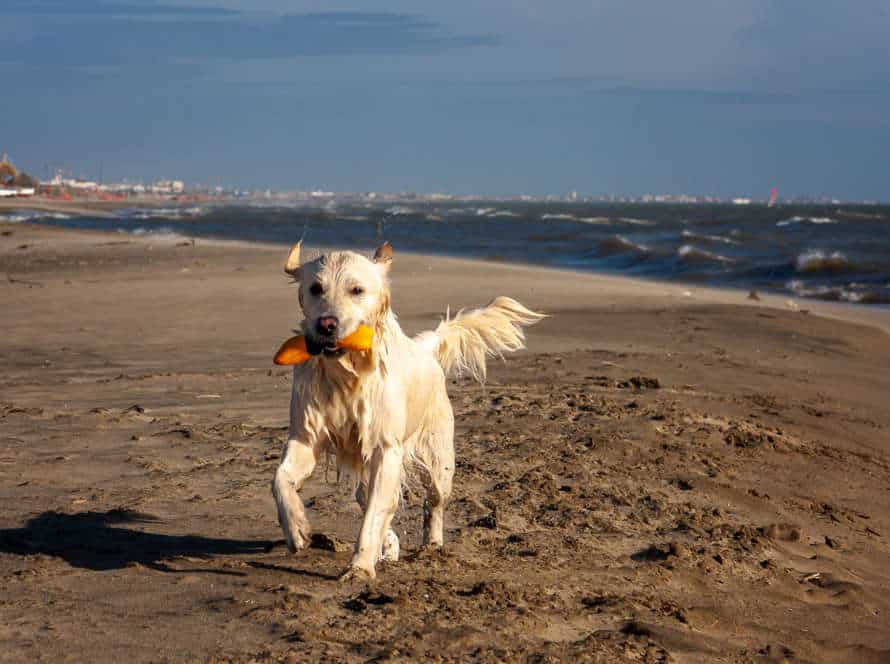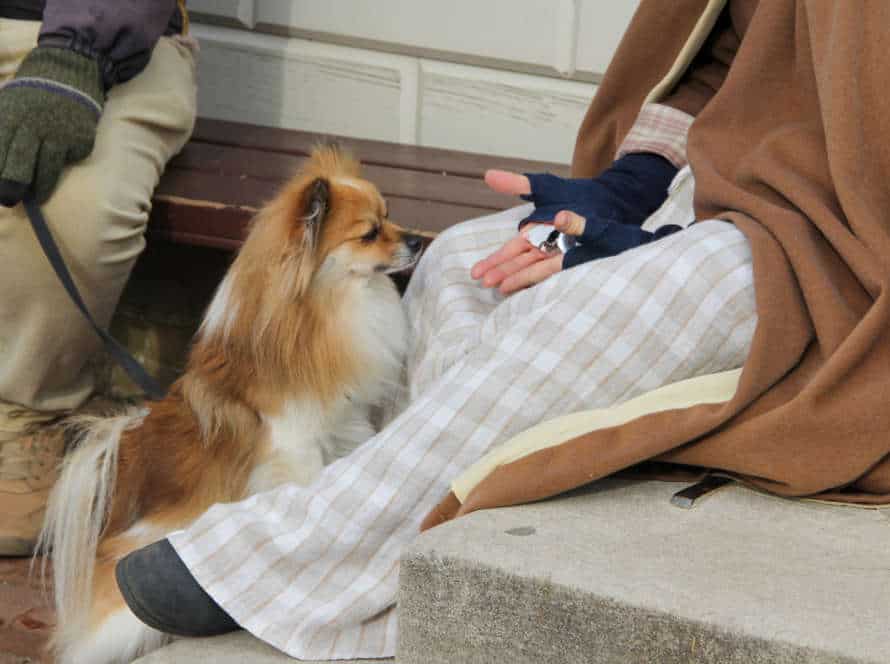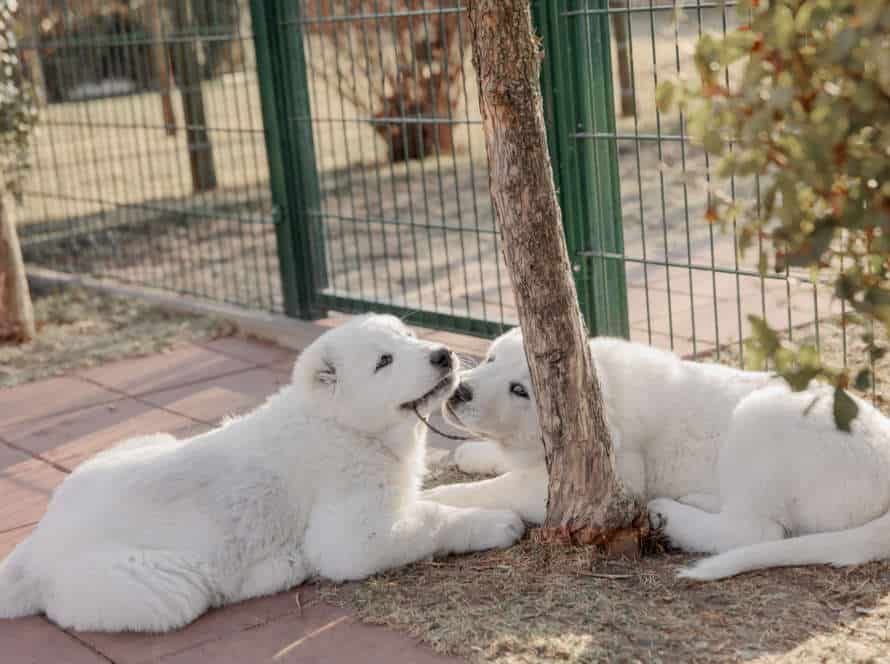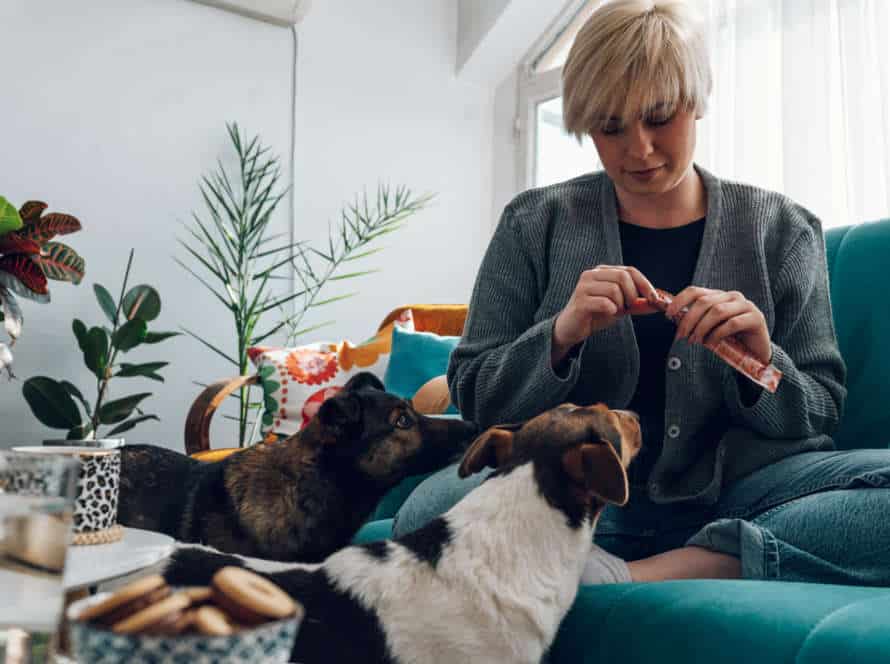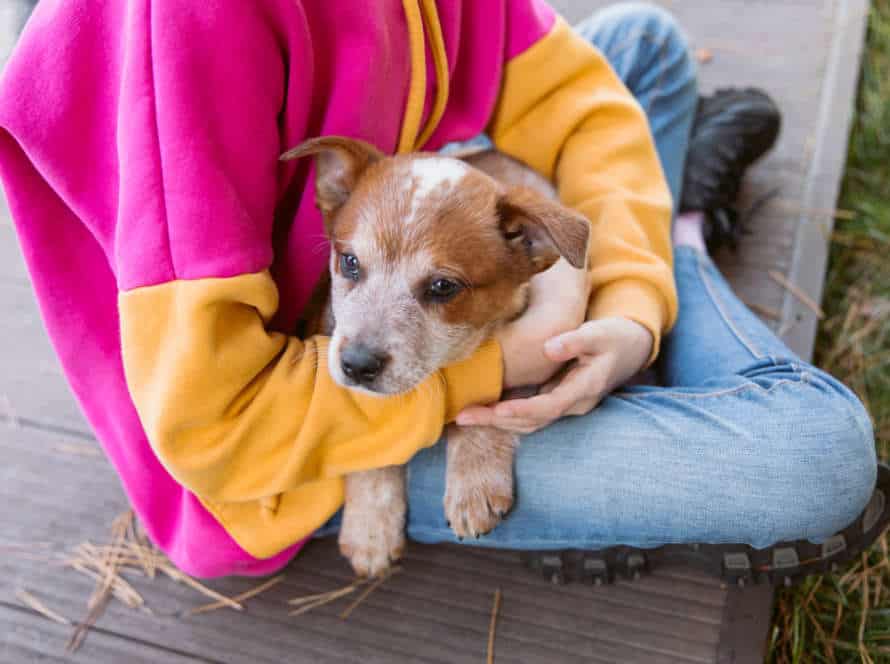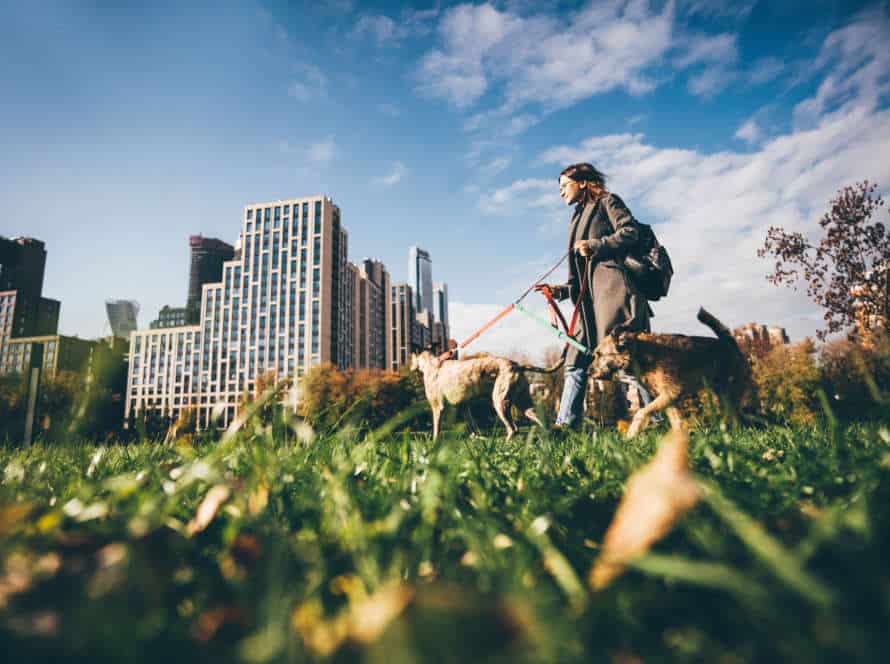Understanding Your Rescue Dog
Maximizing your connection with your rescue pup is key for a successful transition into your home. Discover their past, what they enjoy, don’t like and how they act. In this piece, we will reveal ways to develop understanding and bond with your grown-up rescue dog.
Learning about your dog’s past experiences
Bringing a rescue pup home? Understand their past experiences to create positive ones. Note their behavior and triggers to fear or aggression. Spend quality time to understand their routine and any traumas. Consult a professional for proper training and care. This will help your pup feel safe, comfortable and happy in their new home.
Identifying any behavioral issues
If you have an adult rescue pup, you should recognize any behavioral problems they may have. This’ll help you give your furry friend positive experiences. Here are some of these issues:
- Aggression: Growling, biting or barking. It might be because of fear, territory or past trauma.
- Separation Anxiety: When left alone, they get anxious, noisy or destructive.
- Fearfulness: Certain sounds, people or situations can make them cower, hide or tremble.
- Housebreaking: Accidents inside the home or bad toilet habits.
To address these behavioral issues, you need to give a secure and organized environment, positive reinforcement training and enough chances for socialization and exercise. Getting help from a qualified dog trainer or behaviorist is wise.
Establishing trust and building a bond
Trust-building and bonding with your new rescue pup could be a fulfilling experience. But, it needs consistency, patience, and effort from your side. Here are few tips to create beneficial experiences:
- Set up a routine for feeding, playing, and training your dog.
- Use treats and praise when training your pup, to reward good behavior.
- Go on daily walks and offer exercise chances.
- Designate a safe spot in your home for your pup to relax and feel secure.
- Spend quality time with your pup, doing activities they enjoy, e.g. fetch or cuddles.
Remember, forming a bond takes time and patience. However, with consistent positive experiences and reinforcement, you can build a strong and trusting relationship with your furry companion.
Creating a Positive Home Environment
Creating a home which is tranquil, loving and safe is vital for any grown-up rescue pup. Instilling structure and routines right away will help your rescue pup feel secure in their fresh home. It is likewise important to be understanding and patient with your rescue pup and permit them time to acclimate to the new environment and to you.
Let us look at the best practices for making a positive home environment for your rescue pup.
Providing a safe and comfortable living space
Giving your adult rescue dog a secure and pleasant living space is vital to create a cheerful home environment. Here’s some advice to make sure your pup feels secure and relaxed in their new home:
- Create a special spot for them such as a cuddly bed or cage to go when they feel overwhelmed.
- Make sure your house is safe for your canine by keeping out dangerous things and substances, locking windows and doors, and installing baby gates if necessary.
- Offer your dog lots of exercise, socialization, and mental stimulation to prevent being bored and anxious.
- Introduce your dog to family members gradually and slowly.
- Give your pup lots of love, attention, and patience as they adjust to their new place.
By giving them a peaceful and hospitable home, you’re supporting your dog to be content, comfortable, and adored in their new home.
Planning a routine and sticking to it
Creating a routine and following it is very important for forming a positive home atmosphere and good experiences for your adult rescue pup. Here are some tips to help you plan and stay with a routine:
- Set a normal feeding schedule for your dog, ideally at the same time every day to normalize their digestion.
- Make an everyday exercise routine and follow it, taking into account your dog’s special needs and energy level.
- Allocate a particular spot for your dog’s bed or crate, and keep it clean and pleasant.
- Organise regular training sessions to support good behaviour and strengthen your bond with your dog.
- Make a steady bedtime routine, like going for a walk or playing a quiet game before resting for the night.
By staying with a routine, you can make your adult rescue pup feel safe, protected, and loved in their new home.
Incorporating enrichment activities
Adding enrichment activities is a great way to give your adult rescue dog positive experiences and a happy home. Here’re some ideas:
- Puzzle toys: These toys challenge your pup’s problem-solving. They have compartments with treats or kibble, that your dog has to open.
- Snuffle mat: It’s designed to tap into your pup’s natural foraging instinct. Hide treats in the mat’s strands and keep your pup mentally engaged for longer.
- Agility training: A great indoor activity to keep your pup both physically and mentally active. Plus, it bonds and builds trust between you and your dog.
- Obedience training: Strengthens the bond between you and your pup. Teaches them important life skills and reminds them of your lifelong commitment.
Training and Behavior Modification
Training and behavior modification are the keys to creating positive experiences for your adult rescue dog.
By working with your pup on obedience training and behavior modification, you can build trust and confidence. This can also prevent bad behaviors from getting worse, and create a safe and harmonious home.
Let’s find out how to train and modify behavior for your adult rescue dog!
Positive reinforcement training
Positive reinforcement training is great for adult rescue dogs. It’s a positive experience, promoting good behavior. Here’s how to do it:
- Reward good behavior. Treats, praise or affection. This reinforces the behavior and encourages repetition.
- Use a marker signal. Clicker or a specific word. This lets your dog know they’ve done something good and a reward is coming.
- Keep sessions short. Adult rescue dogs have short attention spans and limited energy.
- Be patient. Training takes time and patience. Some dogs may take longer to learn behaviors and there may be setbacks. Stay consistent and positive.
Pro tip: Consistency is key. Stick to a routine and stay consistent with rewards and commands. Set clear expectations for your dog.
Addressing problem behaviors with behavior modification
Behavior mod is a way to help dogs who have problem habits. Use positivity and no bad stuff. Here’s the plan:
- Figure out what’s bad – like barking, biting, or fear aggression – and why it’s happening.
- Make a good space – safe and where they can relax.
- Use positive reinforcement – clicker, treats, or praise – when they do right and ignore bad stuff.
- Be consistent – have a routine and don’t change it.
- Get help if needed – if it gets worse or won’t go away, see a vet or trainer.
- Be patient – behavior mod takes time and every dog is different.
Getting professional help when needed
Gettin’ profesh help is a must when trainin’ and changin’ behavior for an adult rescue pup. Although there’s lots of info online and in books, each pooch has unique needs. A pro can help you make a plan that fits your pup’s needs.
A pro trainer or behavorist will work with you and your pup to spot areas needin’ work and make a plan with steps. They’ll also give guidance and support to help ya implement the plan, adjust it, and get the results ya want.
If your pup’s strugglin’ with fear, aggression, or obeyin’, a pro can provide training and behavior mod to help create posi experiences for ya and your pup.
Nutrition and Health
Nutrition and health are essential for a great life for your adult rescue pup! Prioritize these two, to keep your dog in top shape. Monitor their diet, physical activity, and overall health. Let’s explore why nutrition and health are so important for your rescue dog’s wellbeing.
Choosing the right diet for your dog
Choosing the right diet for your pup is super important! Every breed and age of dog has different dietary needs. Here are some tips to help you pick the best diet:
- Talk to your vet to decide what your pooch needs.
- Look for a food that complies with AAFCO standards.
- Check the ingredients to make sure it meets your pup’s needs.
- Monitor their body condition and adjust their diet.
Remember, good nutrition is essential for your pup’s health. Pro tip: Mix healthy food into their diet like lean meats, whole grains, and fresh fruits and veggies for peak health.
Scheduling regular vet check-ups
Regular vet check-ups are important for adult rescue dogs. Here’s how to make it positive:
- Introduce them to the clinic beforehand.
- Give treats and praise during the appointment.
- Bring their favourite toy or blanket.
This helps keep them healthier and happier for longer!
Identifying and treating health issues promptly
As a pet owner, it’s important to spot and treat health issues quickly for your adult rescue dog’s wellbeing. Here are a few common ones:
- Dental disease: Bad breath, brownish teeth, or disinterest in food/drink?
- Obesity: Sudden weight gain, difficulty breathing, and lack of activity?
- Skin allergies: Itching, redness, rashes, or hair loss?
If you notice any of these, get in touch with your vet straight away. With fast treatment, your adult rescue dog can stay happy and healthy for years to come!
Pro tip: Feed them a balanced diet and take them for regular exercise to keep them fit.
Socialization and Enrichment
Socializing your adult rescue pup is essential for a successful new home. Introduce them to people, other doggos, environments, and experiences in a positive manner. Enrichment activities are vital for providing emotional, mental, and physical stimulation for rescued dogs. This’ll ensure they thrive in their new home.
Introducing your dog to new people and animals
Introducing your adult rescue pup to unfamiliar people and animals is key for their socialization and well-being. To make the experience a positive one, try these hints:
- Start Off Slow: Introduce your dog to new faces and critters gradually, starting with short, regulated meetings.
- Go for Positive Reinforcement: Reward your pooch with snacks, compliments, and love for good behavior when introducing them.
- Choose the Ideal Place: Pick a tranquil, recognizable area for your pup’s first few meetups with fresh people and animals. Step by step, increase the activities as they become more secure.
- Be Patient: Every dog has their own character and needs, so take your time and don’t pressure the process.
With patience and steadiness, your rescued pup will get used to feeling safe and calm around new people and animals, enhancing their social life and overall joy.
Planning socialization activities
Socialization is essential for a rescue dog’s wellbeing. Plan socialization activities to give your pup positive experiences. Here are a few ideas:
- Playtime: Dogs love it! Plus, it’ll help your rescue learn social cues and gain confidence.
- Walks: Expose your pup to new sights, smells, sounds, and people-on-a-leash.
- Training Sessions: Train to build confidence, acquire new skills, and strengthen the bond between you. Hire a professional trainer if you can.
- Dog Parks: Let your pup socialize and play with others. Just keep an eye out for aggressive behavior.
Socializing your adult rescue dog will ensure a happy and fulfilling life.
Providing opportunities for mental and physical stimulation.
Ensure positive experiences for your adult rescue pup by offering mental and physical stimulation. Socialization and enrichment can help reduce anxiety and prevent behavioral issues. Here’s how:
- Walk your pup daily – mind and body stimulation.
- Puzzle feeders to occupy their minds.
- Socialize with other dogs and humans – lessen fear.
- Rotate toys every few days – keep them interested.
- A safe, secure space for play, rest, comfort.
- Regularly engage in play and training – bond.
Their wellbeing is affected by surroundings, experiences. Socialization and enrichment make a big difference in their health.
Frequently Asked Questions
1. How do I create a positive experience for my adult rescue dog?
To create a positive experience for your adult rescue dog, start by building a loving and trusting relationship with him. Spend quality time with him, give him plenty of attention, and exercise regularly. Provide him with a comfortable place to sleep, nutritious food, and clean water.
2. What are some fun activities I can do with my adult rescue dog?
There are many fun activities you can do with your adult rescue dog, such as hiking, playing fetch, swimming, running, and puzzle games. The key is to find activities that your dog enjoys and that engage him mentally and physically.
3. How do I help my adult rescue dog adjust to a new home?
When bringing your adult rescue dog into a new home, it is important to give him time to adjust. Create a comfortable and safe space for him with his own bed, toys, and bowls. Be patient and consistent with training, and provide positive reinforcement when he follows commands. Give him love and affection frequently to build trust and make him feel secure.
4. How can I socialize my adult rescue dog?
Socializing your adult rescue dog is important to help him adapt to new environments and interact appropriately with people and other animals. Start by introducing him to other dogs slowly and in controlled environments. Enroll him in obedience classes and take him on walks in busy areas to help him become comfortable with various people and situations.
5. What should I do if my adult rescue dog exhibits behavioral problems?
If your adult rescue dog exhibits behavioral problems, such as aggression, anxiety, or fear, it is important to seek professional help from a trainer or behaviorist. They can help diagnose the problem and develop an effective treatment plan to modify the behavior and improve your dog’s overall well-being.
6. How often should I take my adult rescue dog to the veterinarian?
It is recommended to take your adult rescue dog to the veterinarian at least once a year for a check-up and vaccinations. However, if your dog exhibits any health concerns, such as vomiting, diarrhea, lethargy, or loss of appetite, take him to the veterinarian immediately.

